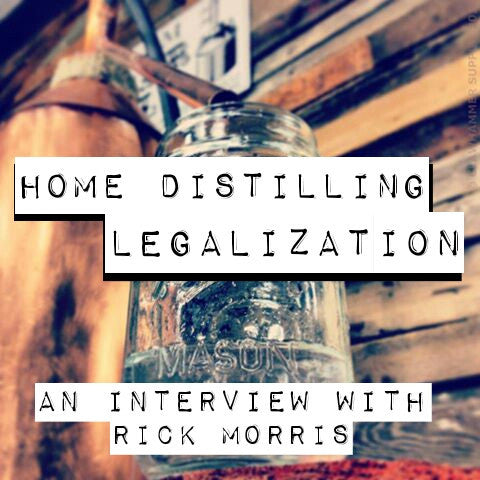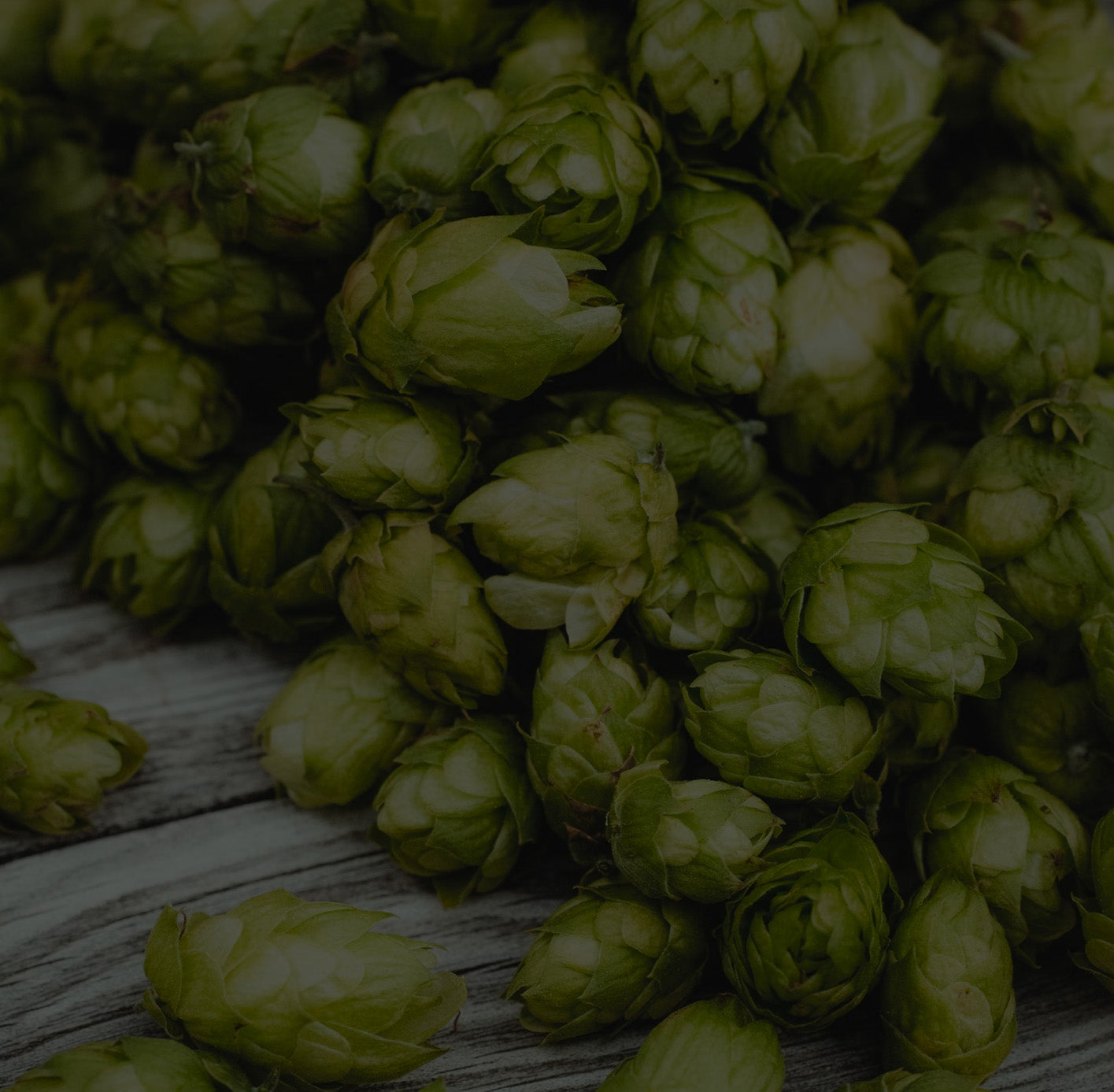Following is interview with rick Morris: Founder of the Hobby Distiller's Association on the The Craft Beverage Modernization and Tax Reform Act of 2015.
Before we get started, a reminder: Distilling alcohol is illegal without a federal fuel alcohol or distilled spirit plant permit as well as relevant state permits. Our distillation equipment is designed for legal uses only and the information in this article is for educational purposes only. Please read our complete legal summary for more information on the legalities of distillation. We get a lot of emails from different folks asking the same question: Is it legal to make moonshine at home? The answer is no. In the United States, under Federal Prohibition-era law, it is illegal to manufacture spirits at home for personal consumption. It is, however, legal to make essential oils, distilled water, and with proper permits (federal, state, and local) fuel alcohol. It's possible to get a "Federal DSP" as well as local permits and open a commercial spirits distillery. But for the most part, distilling alcohol at home is not possible.
We get a lot of emails from different folks asking the same question: Is it legal to make moonshine at home? The answer is no. In the United States, under Federal Prohibition-era law, it is illegal to manufacture spirits at home for personal consumption. It is, however, legal to make essential oils, distilled water, and with proper permits (federal, state, and local) fuel alcohol. It's possible to get a "Federal DSP" as well as local permits and open a commercial spirits distillery. But for the most part, distilling alcohol at home is not possible.
However, there is a group of people fighting for home distilling to be legalized. This effort is being led by Rick Morris, founder of the Hobby Distiller’s Association, which since 2014 has been lobbying for federal legislation to make home distilling for personal consumption legal. Rick was gracious enough to fill us in on what has been going on with where those bills stand, what they include and what people interested in home distilling might expect to see in the coming year.
When the Hobby Distiller’s Association first started fighting for home distilling to be legal, they didn’t have the specifics quite figured out.
“We just thought, ‘O.K., we can lo longer sit here and talk about this,’” Morris told Clawhammer Supply during a recent interview. “We thought, ‘It’s time for action.’”
With bills pending before both the U.S. Senate and House of Representatives, it’s fair to say that the association, which represents about 1,200 to 1,300 home distillers, has been active. But the road to get to this point, and the road ahead, are long.
Back in 2014, the association started by suggesting that the Treasury Department issue a permit, which would have required home distillers to pay a fee to the Alcohol and Tobacco Tax and Trade Bureau in exchange for the right to distill a limited amount of liquor at home.
“We were throwing anything at them where we thought they’d be happy to say ‘yes,’” Morris said.
But the bureau wasn’t interested.
“The numbers were too small,” Morris said. “It would have probably cost them more to enforce than they would have collected.”
The bureau, Morris believes, was more interested in seeing enforcement of home distilling prohibition laws off their plates entirely.
“We’ve got meth labs out there, and other things that, obviously, we know are the bigger concerns to the public,” he said. “The home distiller – this is small potatoes.”
Once that became clear, the Hobby Distiller’s Association’s focus shifted to outright legalization.
The first draft of the first bill to legalize home distilling looks very different from what is before Congress today. Home distilling, in that bill, would have had regulations comparable to home brewing or home winemaking. Some legislators pushed back, asking for hard statistics about safety, primarily about fires started during home distilling.
Home distilling has been legal in New Zealand since 1996, and in that country, distilling equipment gets its own category in national fire statistics. Since home distilling became legal there, New Zealand has reported just a handful of fires.
“It’s actually proven to be safer than just cooking a meal on a stove,” Morris said.
With those safety questions answered, the association pushed even harder for the bill. But then, the liquor industry complained. The original bill would have allowed home distillers to craft 100 gallons of spirits at home, in line with what home brewers are permitted to create, but an amount that even Morris believes is excessive.
“One hundred gallons of beer, that’s one thing,” he said. “One hundred gallons of spirits, that’s totally different.”
The bills in Washington now would allow a distiller to produce 24 to 48 gallons of spirits a year at home, depending on if the distiller lived alone or with another adult. Legislators also rolled the language that would legalize home distilling into a larger bill about the craft alcohol industry, helping it get support from larger alcohol-based companies.
Morris is confident that legalizing home distilling could bring a surge in craft spirits.
“It happened in home brewing,” he said. “And it happened in New Zealand. Everything points to that being the case.”
But first, the bill has to become law. And legislators in Washington already have been hemming and hawing about it for nearly a year.
The Craft Beverage Modernization and Tax Reform Act of 2015, the bill that would, among other things, legalize home distilling, was introduced in both the Senate and the House in the summer of 2015, The Senate bill so far is stalled with the Senate Finance Committee. The House bill hasn’t been discussed on the floor of Congress since last July.
The Home Distiller’s Association is working with a lobbyist in D.C., and Morris and others have made multiple trips to the Capitol to argue on behalf of the bill.
“I like to say that things happen at the speed of government, and I don’t mean that in a bad way,” Morris said. “People don’t realize how many little steps are involved. It does take time. And this isn’t a home distilling bill – we are part of a bigger bill – so all of those steps have to happen for every piece of this thing.”
Still, Rick is optimistic that the bill will pass. The House bill has 172 cosponsors – 100 Republicans and 72 Democrats – indicating that at least that many representatives would vote in favor of it becoming law. It needs 218 votes to pass.
Industry lobbyists from big beer, big liquor and the craft beer industries all have been pushing for the bill to pass as well.
“This is the first time that something has been introduced that everyone is behind,” Morris said. “But with all that said, we have to get the senators and representatives and everyone to actually move it forward.”
Morris said we all will know one way or another by the end of 2016. If the bill hasn’t passed by the time the 114th Congress breaks at the end of the year, Morris and others who have been pushing the bill forward will need to start again.
“If it’s not passed by the end of the year, it goes away, it’s done,” he said. “It’s got lots of support, but it’s got to move through the channels… But they can look to New Zealand and see that the sky didn’t fall and people aren’t blowing their houses up. There’s no guarantee, but we’re cautiously optimistic.”






Leave a comment